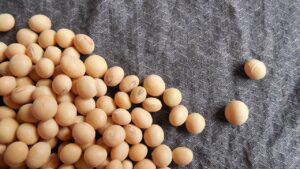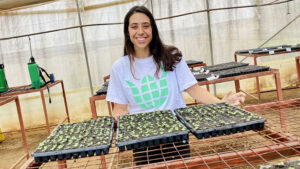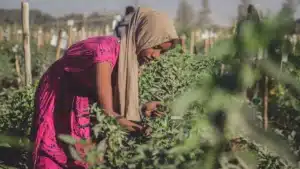Vegetable seed can be transformative, having inherent capacity to beget an abundant supply of fresh nutritious life-sustaining vegetables. Vegetable seeds can readily serve as a practical platform to launch initiatives designed to build capacity. Fresh vegetables, being a highly perishable commodity, however are considerably more difficult to incorporate into development programs.
“We, Seed Programs International (SPI), provide a key but scarce transforming resource, top quality vegetable seed, selected and packaged for appropriateness to local culture, climate and context,” shares Program Director, Kenyan born Naima Dido. “SPI is not at all about providing handout-type aid.”
Training and support accompany SPI seeds, which helps people by empowering them to help themselves. “It is hard to change habits and a culture that is set in place by the art of improvising for survival. Change is gradual. By slowly introducing new healthier ways to prepare and store food, we see change happening.”
Naima remembers a childhood eating only a handful of ingredients prepared in just a couple of different ways every day. She ate Ugali, which is cooked corn flour dough, served with Sukuma Wiki (stew of greens) and sometimes cabbage, potatoes, or carrots. “My mother didn’t explore too much outside the few simple ingredients available to her and of course she provided only what she could afford,” recalls Naima.
The Bloomington, Illinois based Midwest Food Bank’s, East Africa Division mission is to feed disadvantaged children in Nairobi and rural Kenyan faith-based schools. While their program does distribute multipack and individual meal packs, they do not consider it to be a ‘hand-out aid’ program. “School feeding programs have been found effective in keeping kids in school to gain education, thus building capacity of future generations,” says U.S. East Africa Division board member, David Headley.
The program is known in Kenya by its NGO name Kapu Africa. The Swahili word, loosely translated, implies “food collection basket”. Special emphasis is given to feeding students on Mondays and Fridays, as those children often receive little or no food on weekends. Well-fed children are likely to learn more during school than those experiencing hunger.
Carrots, lentils, cowpeas and soy derived textured vegetable protein (TVP) accompany white rice in a commercial product manufactured by indigenously owned Soy Afric Limited. Unimix fortified meal packs, provided by the foodbank, are incorporated into targeted school feeding programs.
Headley says Rose Mutuku’s trading company Smart Logistics Solutions (SLS), engaged by Soy Afric, “can be credited for much of our effectiveness and impact in Kenya”. Rose works in an extension capacity
with local farmers to assure availability of high quality ingredients for Soy Afric’s manufacture of unimix products.
Rose makes a market for local farmers. She offers them firm prices for their production prior to planting time. She takes a holistic approach in working with farmers geared toward their success. She helps them gain access to quality planting seed and teaches how to produce various crops. But she does not stop there. She also teaches how to harvest, clean, handle and store their production to fulfill numerous buyer requirements. Farmers are also afforded harvest time cash performance bonus opportunities.
Naima likes to tell about a doctor who on routine mission trips to Haiti would always take along SPI vegetable seeds. The photos of a young boy whose family had participated three years in a gardening project depict a heartwarming story. She was amazed to see from a photo journal how only three years access to nutritious food changed the life of that little boy.
The first picture showed him having reddish hair and a swollen belly, both signs of severe malnutrition. Fast-forward three years and there he was again, only now as a boy sporting a huge smile, wearing his school uniform and looking healthy. “I used to be that kid,” states Naima.













